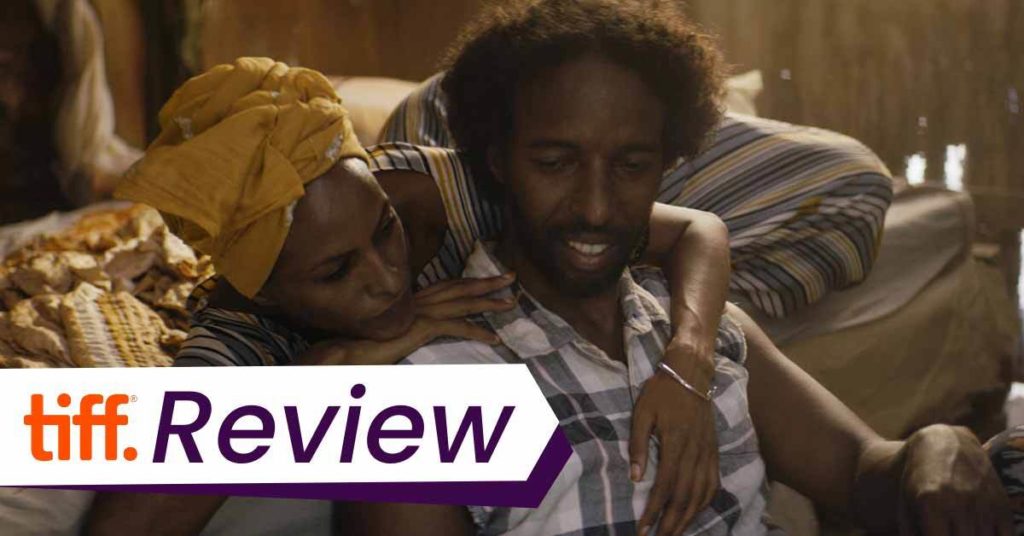The Gravedigger’s Wife follows a Somali gravedigger’s desperate search for funds to finance life-saving surgery for his wife.
Read Orla Smith’s interview with the film’s director here
Click here to find all of our TIFF 2021 coverage and sign up to our TIFF newsletter.

We’re running a daily TIFF 2021 newsletter to give you all our reactions to the best new films as they premiere. Click here to sign up for free.
In Khadar Ayderus Ahmed’s first feature, The Gravedigger’s Wife, which premiered in Semaine de la Critique at Cannes, the great irony is that Guled (Omar Abdi) earns his living by waiting for people to die, but is desperate to make extra cash to save his wife’s life. The film introduces us to Guled and his wife, Nasra (Yasmin Warsame), through small, intimate moments — giving Nasra a bath, making meals, crashing a wedding together — to give us a solid, observed relationship worth rooting for. Set in Dijibouti City, Somalia, Ahmed’s wide shots drop us into this world, letting slices of life seep into the frame in the shanty town where they live. You can feel the beat of the sun, the dirt on the road, and the warmth between the family members.
Like Lingui: The Sacred Bonds (directed by Mahamat-Saleh Haroun and also playing at the festival), The Gravedigger’s Wife is also a film about someone struggling to earn an impossible amount of money to save the person they love most. And Ahmed shares some of Haroun’s best characteristics as a filmmaker: he takes the time to establish place and the small gestures that make up intimacy and love. At the centre of this time-sensitive story is also an indictment of a world in which medical access is difficult and impossibly expensive, and social support is nonexistent. Their simple dreams of getting their son an education seem completely out of grasp: he skips school, doesn’t look up to his illiterate parents, and they have no financial means to change their situation, let alone save Nasra’s life.
There’s an incredible sequence midway through The Gravedigger’s Wife when Guled travels by foot to a neighbouring town where his parents live in one last desperate attempt to get the money he needs for his wife’s surgery. Guled’s and Nasra’s ties to their families fractured when the couple married so it feels like a fool’s errand, but he has no choice. Starting out in his best clothes and carrying a large water bottle, he loses a shoe, starts limping, turns his dress shirt into a makeshift shoe, and goes through enough that you wonder if he will even be able to survive the return journey. He travels through hot, dry terrain for days, largely without finding food or hospitality. Along the way, Ahmed reveals the land and its people, and the love that’s driving Guled to keep going when it seems impossible.
Stay in the know about TIFF 2021.
Subscribe to Seventh Row’s TIFF newsletter.
We’re running a daily newsletter during the festival: every morning, we’ll send subscribers a dispatch about all the new films we’re watching, good and bad, to let you know what’s worth keeping an eye on.

